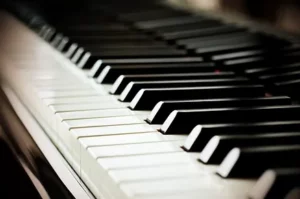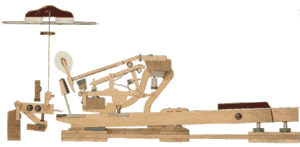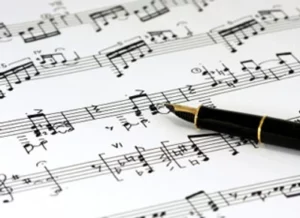Many students and parents want to know whether it is best to take exams or not when learning the piano. There are pros and cons of examinations. Let’s explore them now:
Here are some of the pros…
1: Examinations provide a useful goal to work towards
A lot of students are motivated by goals. When they have a timeframe and a date for the examination, students work effectively towards that goal.
2: Examinations provide another opinion of how your child is going​
Teachers, parents and the students themselves do well to seek the opinion of others about how they are doing at the piano.
3: Without examinations, children often won’t bother to learn their technical work
Yes, this is a big advantage. When you’ve got to play your scales and arpeggios first up in an examination, it forces you to learn them. For many students, without this pressure, they see no good reason to bother with playing their scales.
4: Examinations are great at motivating students in all aspects of their music education
Examinations force students to learn their general knowledge, practise sight reading and hone their aural skills.
5: Exams provide an opportunity for students to perform their pieces
Many students find that there are limited opportunities for them to perform their pieces, particularly outside of a competition or eisteddfod. Therefore, exams allow them the opportunity to play their best but without having to play against those other prodigies in their age group.
6: These examinations are respected and are conducted by reputable music institutions such as the Royal Colleges of Music in the UK and several of the top universities in each of state of Australia.
Students can then travel the world knowing that the qualifications that they have gained are recognised internationally.
7: If a student undertakes a high level examination, they can sometimes receive bonus points towards their university entrance scores​
This mode of entry into university is becoming ever more popular where universities are now actively acknowledging the value of a child who has had a broad based education, the time spent on cultivating interests outside of school and who has strengths other than pure exam technique that the matriculation exams solely focus on.
8: Students learn to deal with performance pressure
This is a big positive for young children. In fact, some children never feel performance pressure because they don’t know any different: they have always done exams and always done concerts and, because they started so young, they never feel nervous. This is a great outcome and has given many students a boost to their self-esteem: they do well at other exams, it can help them with public speaking, etc.
And now for some of the cons…
1: Parents and students think that all there is to learning the piano is passing examinations
The fact is that learning the piano means learning more than six pieces for each year. In fact, so many students and their parents get caught up with the idea that these examinations are the be all and end all of a music education that in the end, these kids get to about grade 5 or 6 and then find that they haven’t got the skills to continue. If we consider that approach, then it would be possible to get to grade 6 and have only played about 50 pieces. If a student has only played 50 pieces ever, it is little wonder that they don’t have the skill and experience to play pieces at this level.
2: Students and their parents think that if they’re talented enough, they can ‘skip’ a grade
This is by far the worst possible outcome. Better to do two exams in one year – or to play double or triple the repertoire and learn as much as possible in that exam year. In the end, a music education is not just about finishing the grades as quickly as possible so that it’s ‘all done’. It is about learning about art and how to be expressive and this takes time. Ideally, learning a musical instrument should instill a life long love for music and their instrument – not just a short (and often unpleasant) affair.
3: By not concentrating on exams, students can spend their time learning a wide repertoire of music and spend their time preparing for concerts, festival performances and competitions
This is largely what happens in the United States of America and this doesn’t hurt the students. The very same proportion go on to study at the best music institutions in the world and become concert pianists just like those who do the opposite and prepare for exams.
4: A student might prepare consistently all year for an exam, but for whatever reason, bomb out on the day. Therefore, the exam mark is not always a great indication of their actual worth ​
This is true – music performance is tricky as you only get one chance to demonstrate that you can play it. But a lot of life is like this, so it helps build resilience and determination. And students can always take the exam again.
5: A student might not prepare for the whole year, but for whatever reason, do really well on the day.
This is the opposite of the previous con. I’d say that this is also not a great outcome and points to a certain randomness in the exercise. In the end, teachers have to be honest with their students and ensure that they are aware that if they put the work in, they will do well and if they don’t, chances are they might get away with it once, but it won’t keep happening.
6: Students don’t always progress at a steady rate
Some grades are more technically challenging for some students than others. If a child needs to take six months to learn all their pieces for an exam, then that is fine, but that same child might need significantly longer to prepare for a later grade. Space should be offered to that student so that they are fully prepared, rather than just trying to rush through grade after grade.​
A Summary
While the above list of pros and cons is by no means exhaustive, I believe a balanced and individual approach is worth considering for each and every student.
When exams have worked well in the past for a student, that is no reason to just continue on through them for the sake of it. Sometimes it can be useful to stray off the examination track for a while so students can develop some needed skills, other times it will be important to get students into an examination program that will help them to focus and be more goal oriented and directed.​
Teachers and parents should also be flexible about how the goal of learning piano might be structured. There are other opportunities for students to gain experience performing (student concerts, festivals, eisteddfods, school concerts, etc), so these are also worth adding to the mix. And there are a range of mechanisms to get feedback from other piano teachers – speak to your teacher more about this.
In the end, it is not a perfect system and there is no ‘right way’ for every student. Therefore, teachers, parents and students should be flexible and honest and focus on the most important aspect of piano lessons in the first place: to receive a musical education.
If you would like more information, would like to book in for lessons, contact Anthony for more information.
Anthony van den Broek is a piano teacher, solo and chamber music performer and examiner with the Australian Music Examinations Board. He has over 25 years experience teaching piano to students of all ages and all levels: from beginner to the most advanced pianists. Anthony is the only teacher who teaches the Taubman Approach for piano technique in Sydney.






